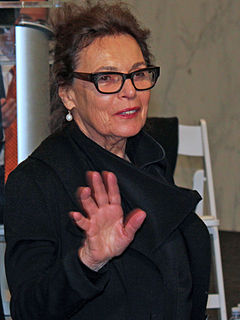A Quote by Marcel Proust
A sort of egotistical self-evaluation is unavoidable in those joys in which erudition and art mingle and in which aesthetic pleasure may become more acute, but not remain as pure.
Related Quotes
Simplicity brings back the joys of Paradise. Not that we have pure pleasure without a moment's suffering, but when we are surrendered to God, we are not grasping for pleasure, and even our troubles are received with thanksgiving. This inner harmony, and this deliverance from fear and the tormenting desires of self, create a satisfaction in the soul which is above all the intoxicating joys of this world put together.
It is an assumption that there is always one single dimension for assessing persons and their actions that has canonical priority. This is the dimension of moral evaluation; "good/evil" is supposed always to trump any other form of evaluation, but that is an assumption, probably the result of the long history of the Christianisation and then gradual de-Christianisation of Europe, which one need not make. Evaluation need not mean moral evaluation, but might include assessments of efficiency, ... simplicity, perspicuousness, aesthetic appeal, and so on.
The way in which a man accepts his fate and all the suffering it entails, the way in which he takes up his cross, gives him ample opportunity — even under the most difficult circumstances — to add a deeper meaning to his life. It may remain brave, dignified and unselfish. Or in the bitter fight for self preservation he may forget his human dignity and become no more than an animal
Even in an advanced stage of civilization, there is always a tendency to prefer those parts of literature which favor ancient prejudices, rather than those which oppose them; and in cases where this tendency is very strong, the only effect of great learning will be to supply the materials which may corroborate old errors and confirm old superstitions. In our time such instances are not uncommon; and we frequently meet with men whose erudition ministers to their ignorance, and who, the more they read the less they know.
Art is the process of evoking pity and terror, which is not abstract at all but very human. What the self-styled modern artists are doing is a sort of unemotional pseudointellectual masturbation . . . whereas creative art is more like intercourse, in which the artist must seduce -- render emotional -- his audience, each time.
There is perhaps no sort of self more subject to dangerous egotism than that which deludes itself with the notion that it is not a self at all, but something else. It is well to beware of persons who believe that the cause, the mission, the philanthropy, the hero, or whatever it may be that they strive for, is outside of themselves, so that they feel a certain irresponsibility, and are likely to do things which they would recognize as wrong if done in behalf of an acknowledged self.
Originality is another criterion of aesthetic value. We may formulate an originality principle, according to which highly valuable works of art provide hitherto unavailable insights.... Notice that, although originality is a necessary condition of high aesthetic value, it is far from a sufficient condition. Many original works have little or no aesthetic value. An artwork may present a novel but uninteresting perspective, or one that is original but wrong.
He alone is worthy of the appellation who either does great things, or teaches how they may be done, or describes them with a suitable majesty when they have been done; but those only are great things which tend to render life more happy, which increase the innocent enjoyments and comforts of existence, or which pave the way to a state of future bliss more permanent and more pure.
The pleasure of despair. But then, it is in despair that we find the most acute pleasure, especially when we are aware of the hopelessness of the situation... ...everything is a mess in which it is impossible to tell what's what, but that despite this impossibility and deception it still hurts you, and the less you can understand, the more it hurts.






































